
Brian's Run Pod
Welcome to Brian's Run Pod, the podcast where we lace up our running shoes and explore the exhilarating world of running. Whether you're a seasoned marathoner, a casual jogger, or just thinking about taking your first stride, this podcast is your ultimate companion on your running journey.
Join us as we dive deep into the sport of running, covering everything from training tips and race strategies to personal stories and inspiring interviews with runners from all walks of life. Whether you're looking to improve your race times, stay motivated, or simply enjoy the therapeutic rhythm of running, Brian's Run Pod has something for every runner.
Brian's Run Pod
Fuel Your Run: Nutrition Strategies for Better Performance
Running performance depends as much on what you eat as how you train, and nutrition expert Lisa Franz breaks down the essentials that can transform your results. Most runners either consume too many calories or consistently undereat, particularly when it comes to protein and other key nutrients.
• Start with tracking your food for 1-2 months as an educational tool to understand what you're actually consuming
• Aim for one gram of protein per pound of goal body weight – most runners need double what they're currently eating
• Protein is crucial for more than just muscles – it builds connective tissue, aids recovery, and helps manage hunger
• Whole foods naturally help you consume about 500 fewer calories compared to processed foods
• Build your plate with approximately 25% lean protein, 50% fruits and vegetables, and 25% quality carbs plus healthy fats
• Personalise portions based on your training volume, body size, and specific goals
• Five servings of fruits and vegetables daily provides essential nutrients for performance and recovery
Don't miss next week's episode where Lisa returns to share more nutrition insights for runners!
Brian's Run Pod has become interactive with the audience. If you look at the top of the Episode description tap on "Send us a Text Message". You can tell me what you think of the episode or alternatively what you would like covered. If your lucky I might even read them out on the podcast.
Instagram
So you're thinking about running, but not sure how to take the first step. My name is Brian Patterson and I'm here to help. Welcome to Brian's Rompod. So, hey there, everyone, welcome back to Brian's Rompod, and it's me, your host, brian Patterson, where we lace up insights just as carefully as we lace up our shoes.
Speaker 1:Today's episode is for runners who are ready to go deeper into the splits and strides, and we're talking fuel and mindset, and our guest is someone who nails both, and also, I think we'll talk about strength training as well. So I'm stoked to introduce Lisa Franz, the mastermind behind nutrition coaching and life. With a master's in exercise science, health promotion and nutrition, plus certifications in hormone health, neurotyping and mindset coaching, she's dissecting everything from what's on your plate to what's happening in your head. So Lisa doesn't do a one size fits all. She brings a holistic, personalized approach, helping people override old habits and unhelpful beliefs to build a life and fuel strategy that fits. So whether you're chasing a personal best, healing from injury or just looking to feel stronger during every mile, this episode will give you a whole new toolkit. So I just wanted to give a very Brian's Rumpod welcome to Lisa.
Speaker 2:Thank you so much for having me, brian. I'm really excited to speak with you and I do hope that I can add some value to your listeners today, to anybody who's trying to better themselves, get into running or any other kind of physical endeavor.
Speaker 1:So, yeah, wanted to start sort of like right at the beginning is like I do with sort of most of my guests is to find out a little bit about. Were you the natural athlete when you were growing up? Because you said that you grew up in Germany, is that correct? And so were you sort of in high school. Were you sort of like the national athlete then, or were you kind of into your studies?
Speaker 2:Well, yes, I grew up in Germany, at least for the majority of my childhood. We lived in West Africa for a short amount of time, as my dad was a development worker, and I spent one year in the US doing like a high school exchange thing, without someone coming to Germany, but just here over there. And so, to answer your question, I was not a natural athlete, I was more the shy girl sitting in the corner drawing or reading books, that kind of character I would say. But at some point I think I was about eight, nine years old One of my friends asked me if I wanted to join the track and field club and more than anything, I actually just wanted to hang out with her. I really didn't care about any activity, but I was like, yeah, okay, sure, and I actually really found myself enjoying it because it was outdoors, it was. It wasn't like a super intense sport. I mean, you do a little bit of long jumping, you do a little bit of running.
Speaker 2:So it was my first introduction to like a structured approach to sports aside from PE, of course and then that sort of morphed into okay, what else can I add to that? Or like what other things might be fun that are active. And it wasn't until I spent that year in the US that I saw how differently other nations approach sports also so like or other people, I guess, because they were so much more serious about it. I was lucky to be in a small high school there and they just wanted anybody on their team.
Speaker 2:I didn't have to go through any hard tryouts or anything like that I was part of to go through any hard tryouts or anything like that I was part of the volleyball team, the basketball team, the track and field team and I learned so much and really developed a passion for sports. So that's kind of where it started when I was 16 years old. It wasn't up until that point.
Speaker 1:I always got the impression that in Germany at least, I mean, there were, there was kind of like I there were, there was kind of like I feel there was kind of like a quite strong emphasis on sport at school, high school. But is that not not the case at that time?
Speaker 2:No, not particularly, at least not in mine. I mean you have the option to go to like a sports focused, like high school, in elementary school or primary school. There's really not that big of a focus on PE and I think it's unfortunately getting less and less every single year.
Speaker 2:But, even then it wasn't a major thing. I think we had PE class like once or maybe twice, once a week or something like that, and the only other time you're really active is like during a race, a recess or during your break. But apart from that it's not necessarily encouraged because um, or emphasized because most of our sports are club based.
Speaker 2:So we don't have as many like schools based uh, or school-based performance sports as, let's say, in the us, where almost everything is school-based, or I believe, in the UK. It's kind of a hybrid model. Is that correct, like some are?
Speaker 1:in the UK. I know when I was growing up there wasn't a massive emphasis on on sport. It was very. I mean, I went to a what you could call it is a private school, so, okay, we had the facilities, but they're, you know, growing up is it's not something that there has been much emphasis. It's only until in recent years, let's say mid-90s, when you know just a little bit of a background, that uh, one of our prime ministers suggested the uh having a national lottery, which obviously helped fuel those people who wanted to, you know, partake in or take sports seriously. So but yeah, so, but I know, I know in Germany, I knew when, probably maybe before your time, but I mean I knew when I grew up watching the Olympics in the 80s and 90s. Obviously it was the East German and the West German, you know, and East German were winning everything pretty much.
Speaker 2:I would say like if people, or when people do get into performance sports, that's a whole different game.
Speaker 1:I would say it's very much.
Speaker 2:either you're not doing a whole heck of a lot, or you're doing high performance and that middle section is just sort of missing, whereas I feel like in countries like the US or so, it's a lot more like even people that are more medium range are doing more activity, at least during high school.
Speaker 1:Where was that transition that you felt? Maybe this could you know, make a living out of?
Speaker 2:So I would say the ignition really was turned in that year in the US, where it was like, oh, it's so much fun, fun.
Speaker 2:And I realized not just how much fun it was, but also that I wanted to work with people preventatively, in the sense of not getting to the point where we're seeing physical impairments or we're depending on other people's help and so just like basically more longevity-based. So over the next few years or finishing up high school, then I already had in mind I wanted to study exercise science and I applied for the European Sports University in Cologne, which is a pretty good school when it comes to anything sports-related. I mean, at that university, just to give people context, there's literally nothing else other than various exercise science degrees or sports degrees. So you can study sports health and prevention, you can study sports marketing, you can study PE teaching.
Speaker 1:You can study.
Speaker 2:And so basically all these things, and in order to get into that school, you do have to go through a pretty um difficult uh, I guess um admission process and and tests as well. And the first time around I actually failed. I failed at two practical disciplines. One one was shot put and the other one oh, so they.
Speaker 1:So it is. They do a practical as well as a theory side to it.
Speaker 2:Oh, I see it's 20 different disciplines that you have to go through and you're only allowed to fail at one of them, and I failed at two.
Speaker 2:I fell in shock and I think it was something with gymnastics, like pull-ups or something like that, I don't remember. And so then I went back home and put my head down and practiced even more. And, yeah, the second time around, thankfully I got in, and that's when I then studied. Um, I then started my exercise science degree over there and after a little while I transferred over to a university in New Zealand, the Auckland University of Technology. I wanted to finish my degree in an English-speaking country and, yeah, pretty much where that desire to do something in the active space came from right.
Speaker 1:So I know we'll get into, you know, the nutrition and sort of the basics and giving our audience a little bit of an idea, a flavor of if you forgive the pun, as it were, about how they can benefit from your expertise. But very early on did you feel that there was kind of this, maybe gap in the market? Or you thought, well, you know, nutrition is an area that I'm quite keen on and maybe I might want to sort of take that further.
Speaker 2:So the reason was threefold really. So number one I realized that most people, if they don't address nutrition alongside with training, they don't make any or as many strides towards their goal as if we address both of them. So that was the first one.
Speaker 2:The second one was really a personal one, because I too was kind of struggling through various diets. I always thought I'd either be able to have the body and performance that I wanted or I could live a sustainable life where I'm also being social, where I travel and so on. I'd have to pick one or the other, and so I put myself through horribly restrictive diets until I learned better. And yeah. Then the third one really came more from also a practicality point of view, because I knew I wanted to work location free, I wanted to be able to work from anywhere, and I started with online personal training and realized that again, like the market was much bigger, or the need was much bigger, in my opinion, for online nutrition coaches than online personal training. Because I do think, when it comes to training or to coaching let's say, strength training in the gym, personal trainers or even run coaches- in person, it's slightly better than remote, whereas with nutrition remote is absolutely fine, if not better, than an remote.
Speaker 1:whereas with nutrition remote is absolutely fine, if not better, um than an in-person coach so so is your thinking that you know people, the nutrition side, in terms of nutrition education. There's kind of bit more scope there to give you know your clients or people as to you know much more guidance you know for I think when it comes to nutrition, the need for personalization and individualization is higher than when it comes to training.
Speaker 2:I would believe I would say that the majority of people can at least get started with a very generic training program, run training program.
Speaker 2:You know, you can type up Google blah, blah, blah, like I would run a 5K in the next few months and you can find a pretty decent training program for that, whereas when it comes to nutrition, there is so much more to that. There is the emotional aspect, there is the what do we inherit from our parents aspect. That is, what's our environment like, what's our personal taste like, what is our meal frequency like, what are our habits like, and I think that really needs to be addressed on a one-to-one basis, as opposed to just following a meal plan from xyz or tapping into like, just talking to chat chibi t and be like a meal plan make sure it can do that.
Speaker 1:But then what happens if thursday rolls around and you have your sugar cravings because you have a stressful day, or gpt can't really help you with that, or at least not very well and I liked, because I think I was listening to you on another podcast, which the name escapes me, but I do like that analogy, where I'm not going off the tangent, where you said well, in terms of you can run 500 calories, which maybe take you, depending you know I don't know 10k or something like that, and that would take you, I don't know, 30 minutes or 40 minutes, whereas to eat that you know like to eat a chocolate bar, you can do that in a minute, you know sort of thing and I like.
Speaker 1:I like that kind of like analogy where those those two way weighing up. So you, I think it sort of tries to give yeah, yeah you cannot exercise a poor diet.
Speaker 2:Absolutely I I will, because I I a lot of people that I work with. They say I'm so, I've been training uh well, for some time, and maybe they even eat quote-unquote clean, or they eat well, or whatever they think as well. They're like why don't I look like I work out, or why am I still so sore? Why is this and that happening? And yeah, quite often, um, it really is that they're either eating way too much, not enough, not enough of protein, or like just making any kind of mistake. That's harder to spot when you don't have the specific insights.
Speaker 1:So I know it's very difficult to be very generic within this space and I know that someone's nutritional needs for one person is very different to someone else, like myself or something. But where can we start as a baseline in terms of having some kind of sort of basic education in terms of our nutrition for, let's say, for you know, obviously basically for runners?
Speaker 2:Yeah, no, that's a great question and, as you point out, it is difficult to give a generic recommendation. However, I would say the majority of people fall into one of two categories Either they eat too much, eat above their caloric needs and therefore they put on body fat, or they constantly and consistently don't eat enough, or at least not enough, of the right things. So that would then mean your hormones adapt. That would then mean your metabolism slows down too much. That would then mean we're seeing some malnourished other things like you get sick all the time, you're starting to have injuries from your runs or whatever. So generally, we can kind of categorize those two groups.
Speaker 2:And where people can start is literally just and this sounds either too simple or too tedious, but literally just by keeping a food diary, and I encourage my clients when we start off, to do that with an app. There are so many free apps that allow you to record your food these days and again I realized that that's just another few minutes out of your already busy day very likely where you're like oh Lisa, I don't want to put the food on the scale. What's the point of that? But I'll tell you why. I really think this is a wonderful, incredible educational tool. It has been, at least for me and for all of my clients. Incredible educational tool. It has been at least for me and for all my clients because I also thought like, oh, this is healthy, um, I can have as much of that as I want.
Speaker 2:Or with other things I was terrified of eating, you know, cereal or something like that, because I thought, oh, this was really really unhealthy. And that whole classification of something is good or bad is not just not ideal for our relationship with food, it's really also not ideal from a caloric perspective because, for instance, like that cereal that I was alluding to, it might, if you have a small bowl of cereal, that might actually be less calories than if you have a handful of nuts. And, like you know, but I personally would beat myself up over having a small bowl of sugary cereal because I thought that that was just inherently terrible for my body because it was carbs and of course it was some sugar on there. But I didn't realize that, okay, a handful of nuts. Even though they're natural, they are very calorically dense.
Speaker 2:And so simply tracking and weighing your food for I would say at least a month or two, and I'm saying this longer period of time because, as always, there's a learning curve to things. You're going to make an error when it comes to food estimations. You're going to make an error when it comes to how to log it, but it will be very eye-opening because you will see oh okay, there's actually not that much protein in peanut butter. Or oh, wow, low-fat Greek yogurt is an excellent source of protein. I can use that much more for a small amount of calories.
Speaker 2:So it's really more of an educational tool and I would encourage anybody to just start off with that, because it gives you an insight into am I eating 1,500 calories per day or am I eating 3000? I, literally most people, have no idea of their actual caloric needs or what they're eating at the moment. So that's really where I would start off with and, I guess, taking that one step further. Most of the time, people also fall into or here I guess we don't have categories but the majority of people let me say 80, maybe probably even more, like 90% of the people that I start working with they don't eat enough protein, and I know that, particularly in the endurance sport world, or in the runner's world.
Speaker 2:Protein is not necessarily the macronutrient that people talk about a lot. It's usually a debate between are we fueling our run through carbs or are we keto adapted and we're now just utilizing fats? That's kind of like the newer hype, so to speak, but protein is sort of the macronutrient that often falls between the gaps. And I will tell you why it's so important, even for, or including endurance athletes. There are numerous reasons, but here are the top ones. So the first one is literally all of the building blocks in our body, whether that is your hair, your skin, your connective tissue, your tendons all of them are made out of protein. Proteins are the building blocks of our body, not just the muscles Good point.
Speaker 2:Just the muscles, but it literally is all of it. So if you have joint pain or if you feel like you're too sore after your workout, eating more protein is going to help with that. If you feel like your skin is getting saggy or whatever you would like to look more defined, protein is going to help you with that. So it's not just for the bodybuilders or for the people that want to look super muscly. Number two protein is very, very, very unlikely to be stored as body fat. So if you eat the same amount of calories from carbs and fats versus from protein and a little bit of carbs and fats, it is a lot less likely that the protein or that those calories are going to be stored as body fat than if you overeat them on carbs and fats, because structurally, so from a chemical makeup perspective, carbs are very easy to be stored or to be transcribed into body fat and, of course, fat is very easy to be transcribed into body fat. So that is another really, really big reason. And the third one well, I'm probably going to say more than just the three and the third one is also that protein is very satiating. So if we eat a diet that is 30 to 40% protein, we're going to have less hunger or feel less hungry, given that those are whole food protein sources such as eggs, tofu, fish, whatever you know. You can also get that on a base diet, that's no problem. But you're going to be more satiated than if you eat that from carbs and, of course, especially if they are processed carbs like or crisps or whatever you call them or things like that. So, even from a satiation perspective and I'm highlighting in the satiation, because in any kind of diet, if we want to call it that way, or any kind of style of eating, how hungry or how full you are determines a lot how much you eat.
Speaker 2:They have done a study, a very famous study by Kevin Hall, I believe it was I'm not 100% sure, I think it was 2019, where they had two groups of people and in the first group, they gave them access to unlimited amounts of food, of whole foods and by whole foods I mean foods that have one ingredient or are minimally processed. So let's say, oats would fall into that category even or are minimally processed. So let's say oats would fall into that category, even though they're slightly processed. Of course, vegetables, meat, fish, anything like that's not super processed and the other group. They gave them full access to processed foods, let's say, white bread, your cereals, all these kinds of things and they just said, eat until you're satiated.
Speaker 2:And after a little while, or after a couple of weeks, they took a break and then they switched the groups. No, it wasn't a couple of weeks, but yeah, after a while they switched the two groups and the people that had access to the highly processed foods on average ate 500 calories per day more than the group in the whole foods section. So not just if you eat more protein, but also if you eat generally mostly unprocessed foods, you on average eat 500 calories per day. Less 500 calories for many people. For most of the people out there, that's about a quarter of their daily calorie intake.
Speaker 2:That's a huge amount. So here, just the recommendation to eat, yes, more protein, but also mostly whole foods. So yeah, those were, like the main three big reasons to eat more protein, even as an endurance athlete, or especially also as an endurance athlete, of course, alongside of your preferred energy source, whether, that is, you're more fat-based or you're more of a carb-based person, or if you like a balance of the two.
Speaker 1:So I mean, if I was to have a plate in front of me, so what would be the ratio? Some people like to sort of have a mental focus and see how it would look. I mean I'll be looking like a third. Or do we break it down into quarters or eighths or something like that in terms of the different food elements?
Speaker 2:Yeah, really great question again here also. And um, yeah, so overall, we do um have to remember that the majority of whether we gain weight or lose weight um specifically fat. It just comes down to overall calories.
Speaker 2:So if we're getting more calories, more energy than what we're burning, we're going to put on weight. If we eat less energy than what we're burning, we're going to um lose some, some weight, ideally body fat, um fat. So that is the most important thing to remember the overall quantity of what we're eating. But amongst that, as I said, protein also determines a lot on if we lose fat or muscle or both. So if we're eating a diet really low in protein and we're going through a weight loss phase, we're much more inclined, or our bodies are much more inclined, to also lose a good amount of lean mass. And again, you might be listening and thinking I really don't actually care about looking muscular, but everybody should care about retaining muscle mass because as we age, our bodies naturally want to let go of some muscle.
Speaker 2:And we, in order to function well in a longer age. You know, carrying our groceries, lifting up the suitcase when we're traveling, all these sort of things. Those are so important to retain muscle mass. So that again another reason for protein. And then the importance of the exact distribution of carbs and fats really is not as important, or comes down a lot more to personal preference and what the person can stick with. Nonetheless, I will give you a rough outline of what a plate right, okay, yeah and I'll give you.
Speaker 2:I'll give you some um variations as to whether you want to be more fat or carb based, but just generally speaking, if we're taking it a little bit more specifically, a rough recommendation for the person listening, if they are tracking their food in a food diary app and so on, would be to aim for around about one gram per pound of gold body weight in a protein protein. So let's say, if someone weighs 150 pounds, about 150 grams of protein would be an amazing um goal. To for protein intake slightly lower, like even 120 is is fine. The the um. Sad truth is that most people, or especially many women, they might only get 50 to 60 grams per day and that's really not enough Like they should, literally have double, not more.
Speaker 2:Men might get like 60, 70 often. So, yes, literally double. And if you're not tracking, if you don't want to go that deep, just a rough place to start would be to say I'm going to include around about a palm-sized portion of lean protein into every dish that I eat, or ideally every dish that I eat. So, for example, in your breakfast it could be an egg white omelet that you're including, or it could be some low-fat Greek yogurt and you might want to mix in a little bit of protein powder just for extra flavor. That could be your breakfast. In your lunch that could be some chicken breast, or it could be fish and I'm saying lean protein because we don't want to have super fatty protein sources. There's nothing terribly wrong with that, but that's just going to increase your calorie intake. Obviously, and for the majority of people, we want to stay with the fish, the chicken breast. Or, again, if it's plant-based, that could be your seitan, your tofu, your tempeh, that kind of stuff. And yeah, your dinner I mean that again could also be some steak. From time to time it can be salmon and your afternoon snack you might want to have some low-fat cottage cheese with a little bit of fruit, or it could be a boiled egg if you're on the go. Protein on the go is fine also. So yeah that that for most people that's going to make up about a quarter of the plate.
Speaker 2:And then, of course, we haven't even spoken about fiber or the important of importance of vegetables also. But many people are familiar with that general recommendation of five plus a day and there is a lot of like. I won't say that I back up many government recommendations, but that's one where I stand and I do say five plus a day is actually a really wonderful thing for people to aim for. And five plus a day for those that might not be familiar is just the recommendation to have roughly five handfuls of vegetables and fruit per day. So that could be at your breakfast you have about 100 grams of blueberries.
Speaker 2:In your lunch you might have a mixture of various lettuces, one handful and some tomatoes and cucumbers, and in your dinner it might be your Brussels sprouts and carrots or something like that, and that might get you to 500 grams of vegetables. That would be ideal and that could take up about half of the plate really. So we want to include a good amount of vegetables there and then that last quarter of the plate, that could be a cupped handful of, let's say, rice, quinoa, potatoes, something like that, and then a small amount of healthy fats, for example some olive oil that you use for cooking around, about a tablespoon, or some avocado, some nuts and seeds. So usually for that portion we say something like a thumb-sized portion of fat, healthy fat can be included in your meal. Now, of course, there's a ton of variants to that Of course, yeah.
Speaker 2:That sounds so tiny. You know I'm training for marathon or half marathon or even your first nk um. In your post run uh meal you might want to include two cupped handfuls. Or if you're a male listening to this and you're 190 tall, one cupped handful of rice is also basically nothing for you. So this very much depends on am I sedentary, am I not? Am I five feet tall? Am I six feet tall, am I how? And am I training or not?
Speaker 1:but this is like the super, super vague um outline of what yeah, I mean, as we said earlier, and it's very difficult to be very specific, you know, but obviously it's a very generic thing and that's a wrap for today's episode. Before we go here's, here's a quick recap of Lisa Fran's top nutrition tips for runners and there's more to come next week. So many runners either overeat or miss out on key nutrients, which can hamper performance. Consider tracking your food for one to two months as a great way to understand your actual eating habits. Don't forget your protein is vital for recovery, joint health and managing hunger.
Speaker 1:Whole foods naturally help you consume around 500 fewer calories daily compared to processed foods. Aim for about one gram of protein per pound of your goal body weight. Build a balanced plate. Let's say 25 lean protein, 50 fruits and veggies and 25 25% quality carbs, plus a thumb-sized portion of healthy fats. Finally, tweak your portions based on your personal stats and training goals. As you will agree with me, lisa has been a wealth of information and, honestly, there's so much to unpack in this episode. As I said, there will be more coming next week when we talk to Lisa in an interview, part two. So don't forget to listen to that. So all there is for me to say is goodbye and thank you very much for listening.
Podcasts we love
Check out these other fine podcasts recommended by us, not an algorithm.
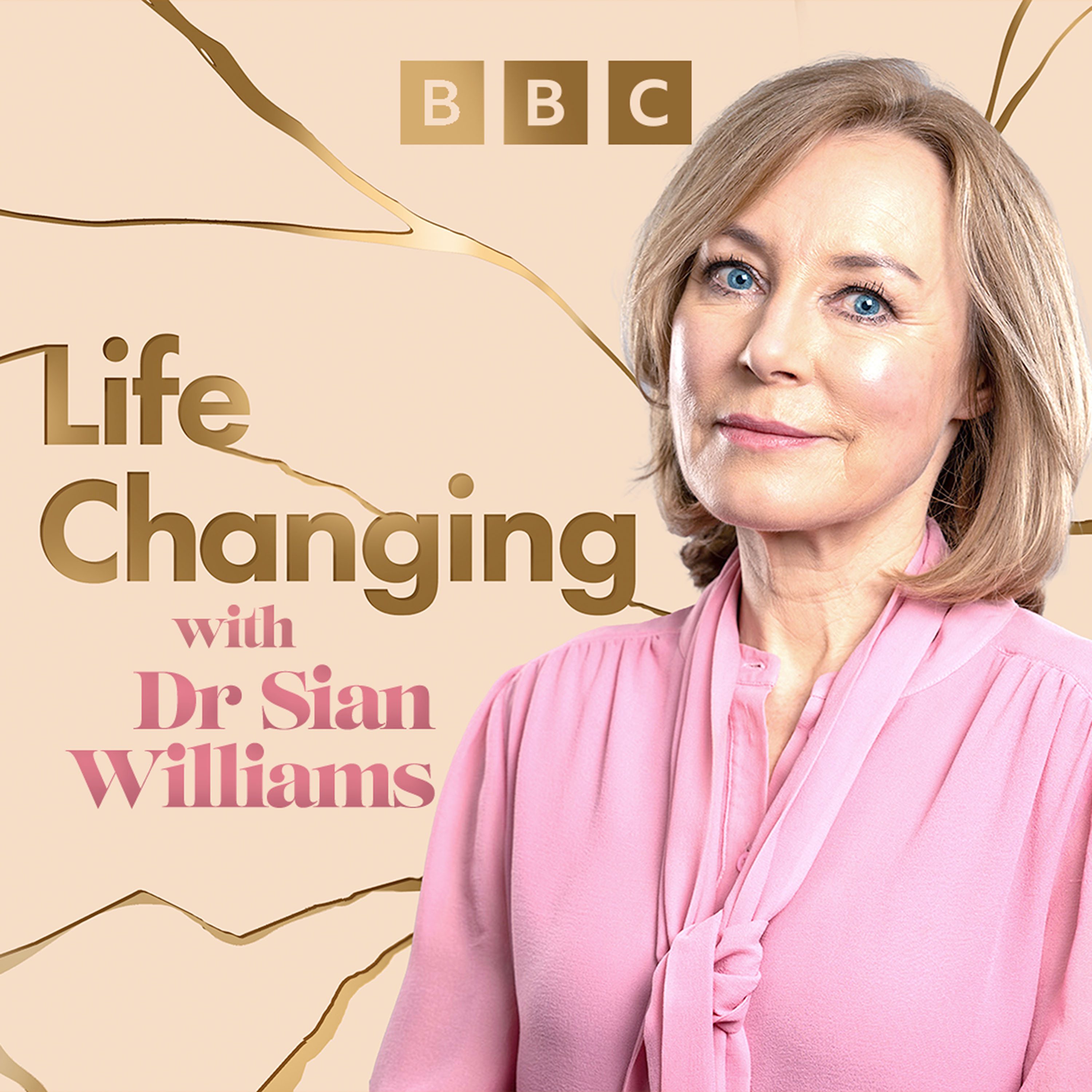
Life Changing
BBC Radio 4
Tech Life
BBC World Service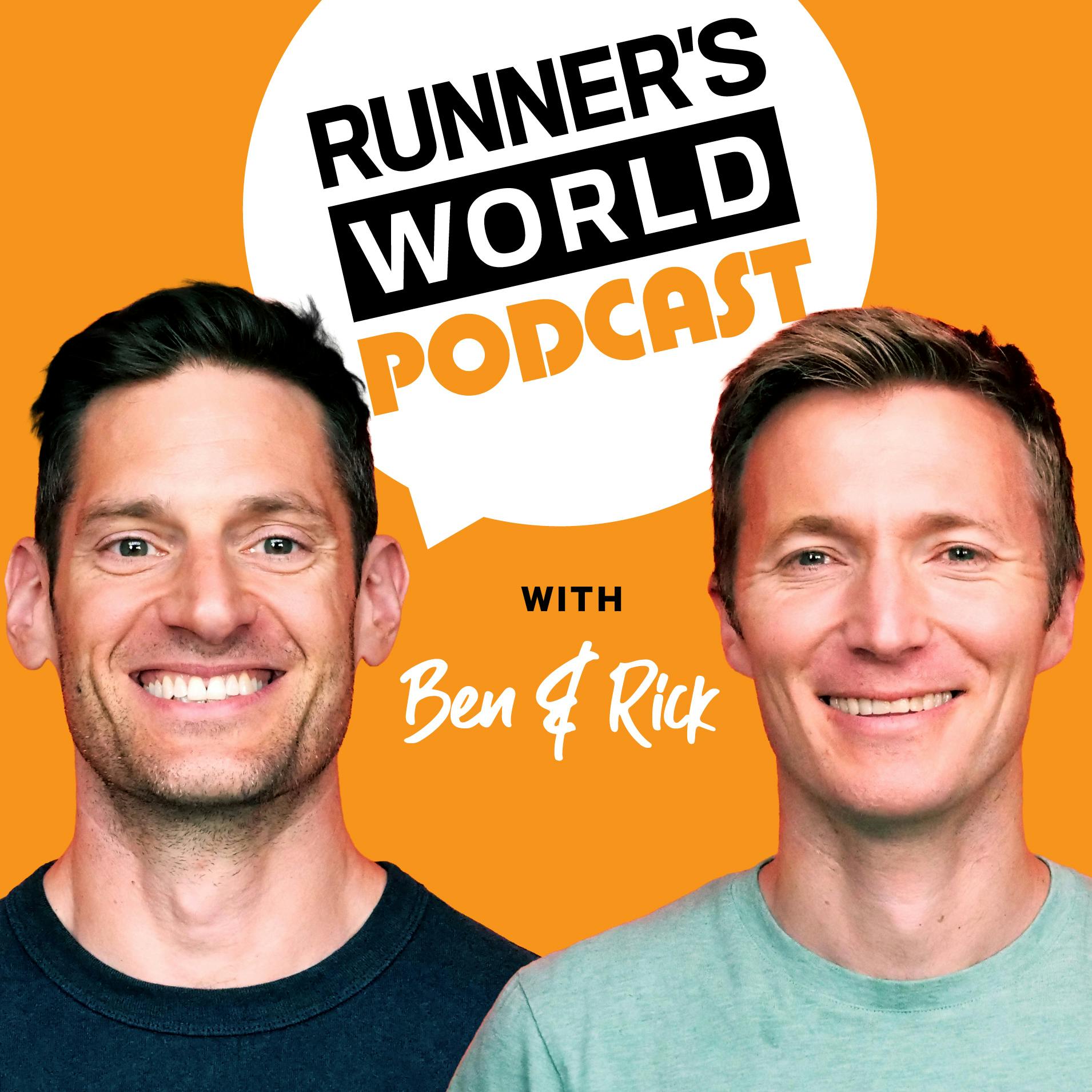
Runner's World Podcast
Runner's World UK
Buzzcast
Buzzsprout
Newscast
BBC News
Understand
BBC Radio 4
Cyber Hack
BBC World Service
Ghost Story
Audible| Pineapple Street StudiosDiz Runs Radio: Running, Life, & Everything In Between
Join Denny Krahe, AKA Diz, as he talks with a variety of runners about running, life, and everything in between.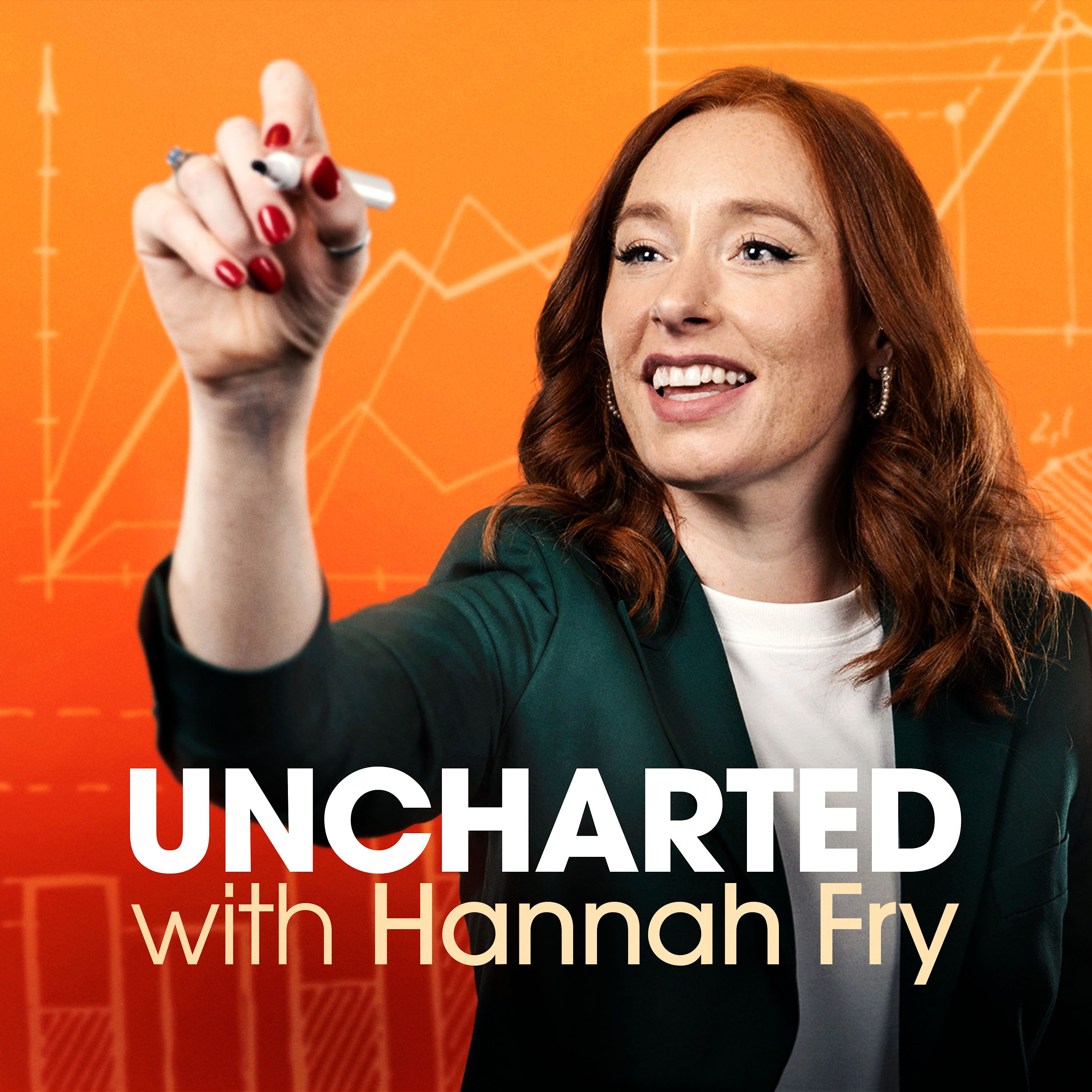
Uncharted with Hannah Fry
BBC Radio 4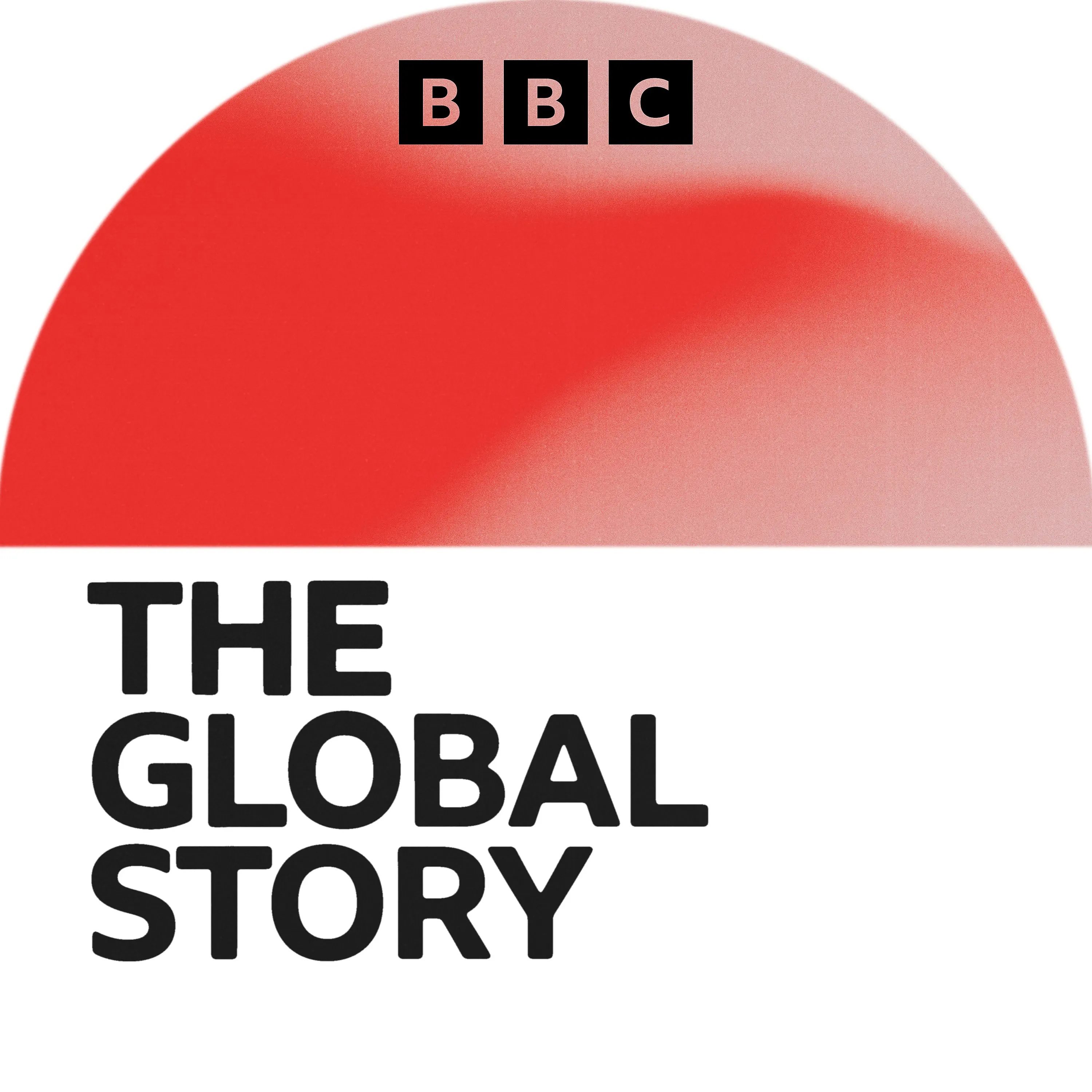
The Global Story
BBC World Service
The Coming Storm
BBC Radio 4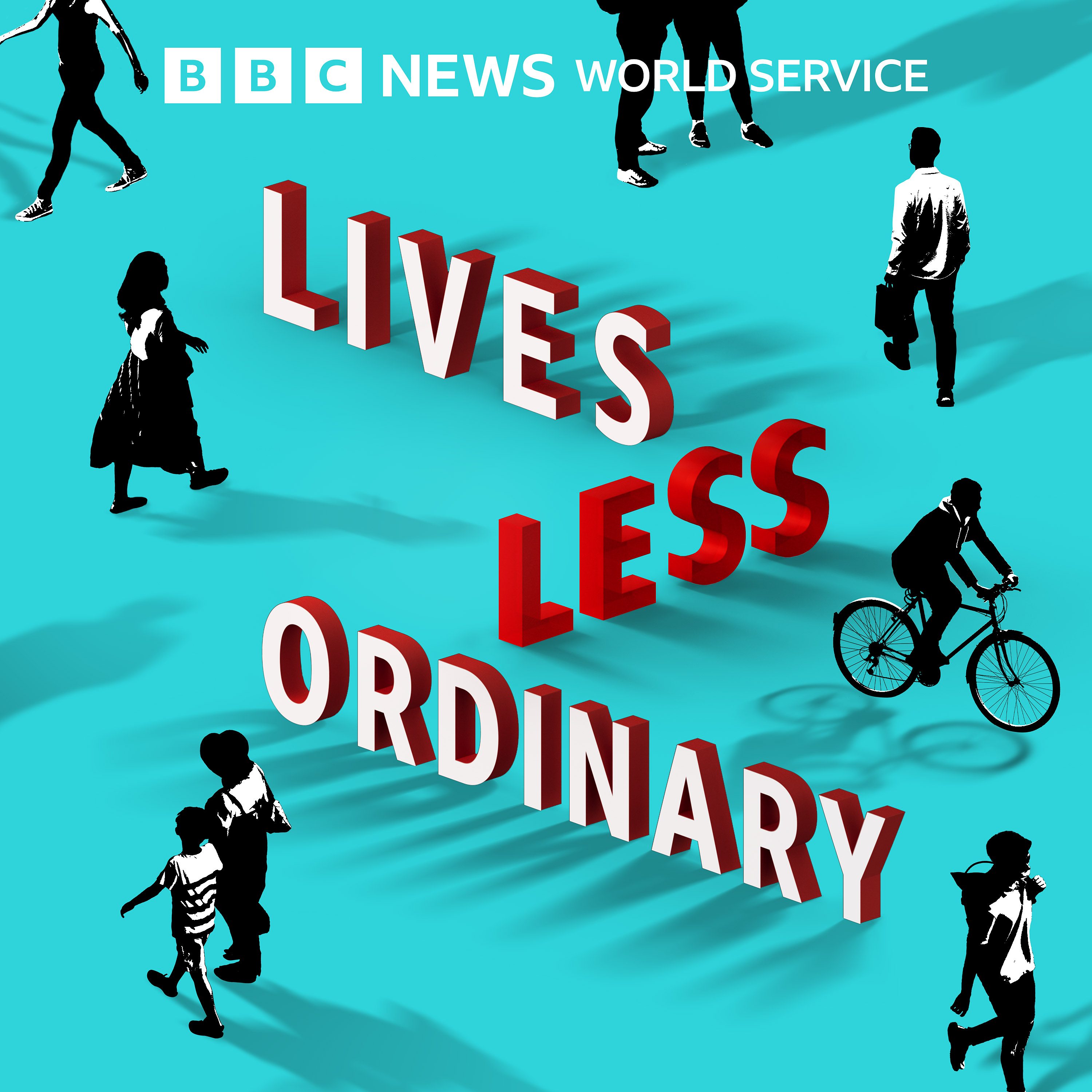
Lives Less Ordinary
BBC World Service
Do Epic Shit Today Podcast
Hannah Mulhern
The Rest Is History
Goalhanger
